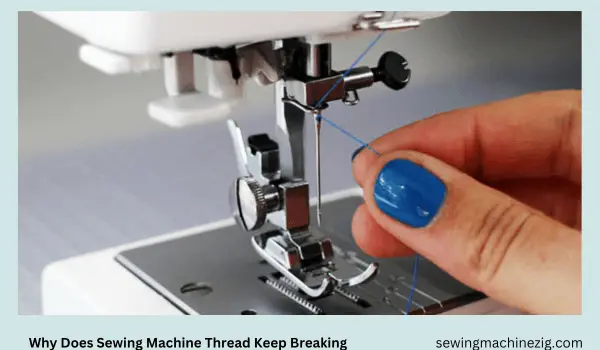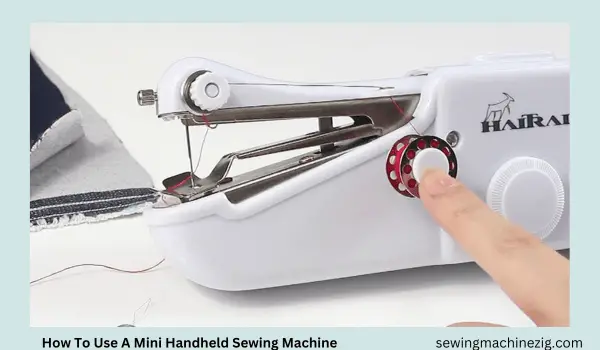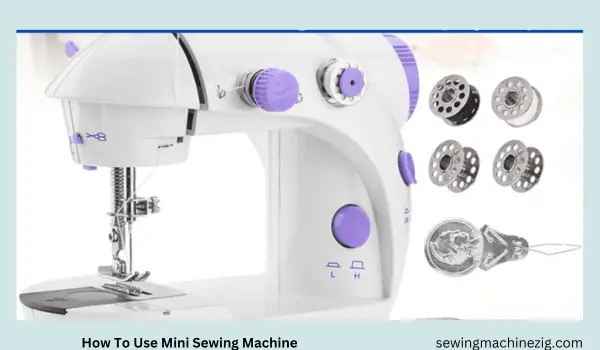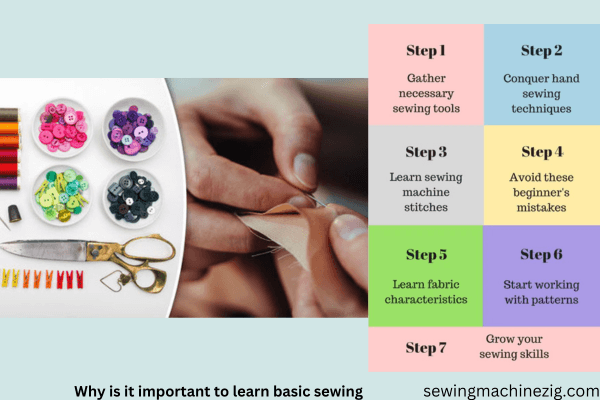
Learning basic sewing skills is a valuable and practical endeavor that offers numerous benefits in today’s world. I will tell you more about why is it important to learn basic sewing, let’s explore the world of sewing. Sewing is an ancient craft that has stood the test of time, evolving alongside human civilization.
From repairing garments to creating one-of-a-kind creations, basic sewing skills empower individuals to take control of their clothing, express their creativity, and engage in sustainable practices.
In a society driven by mass production and fast fashion, knowing why is it important to learn basic sewing helps you how to sew and provides a sense of self-sufficiency and resourcefulness. Being able to mend a torn seam or replace a missing button saves money and reduces waste by extending the life of clothing.
Moreover, basic sewing skills allow for customization and personalization, enabling individuals to add unique touches to their garments and accessories. Sewing also fosters creativity and self-expression. It provides a medium through which ideas and designs can be transformed into tangible creations, reflecting an individual’s unique style and personality.
Whether it’s designing a custom dress, altering a garment to fit perfectly, or creating handmade gifts, sewing opens up a world of creative possibilities. It is a timeless skill that not only connects us to our heritage but also equips us with the tools to shape our clothing choices and embrace a more conscious and self-sufficient lifestyle.
Learning Skills Why Is It Important To Learn Basic Sewing Reasons
1. Self-Sufficiency:
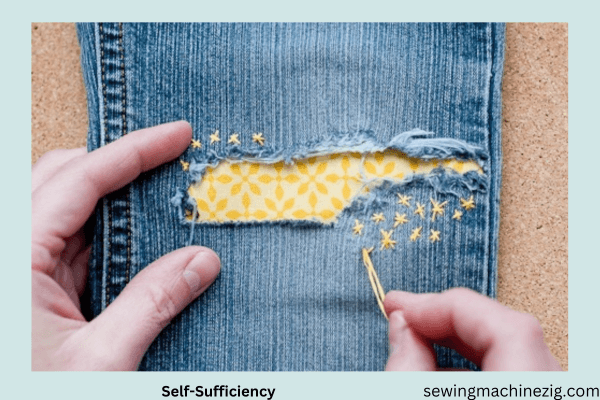
Knowing why is it important to learn basic sewing; well learning how to sew allows you to handle basic repairs and alterations on your clothing, such as fixing a loose button or hemming pants. This saves you money and reduces the need to replace garments for minor issues.
2. Customization:
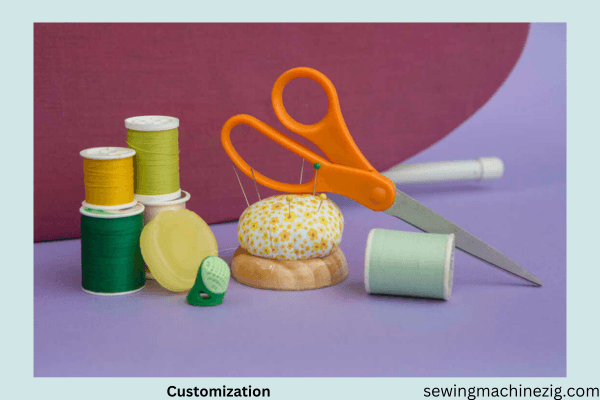
Knowing why is it important to learn basic sewing helps you with basic sewing skills that enable you to personalize and customize your clothing and accessories. You can add unique embellishments, modify designs, or create entirely new pieces that reflect your personal style and preferences.
3. Creativity And Self-Expression:
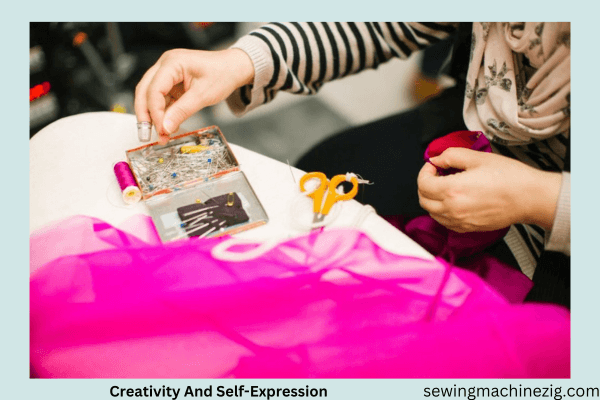
Sewing allows you to tap into your creativity and express yourself through fabric and thread. You can bring your ideas to life, turning them into tangible creations that showcase your individuality and artistic vision.
4. Sustainable Practices:
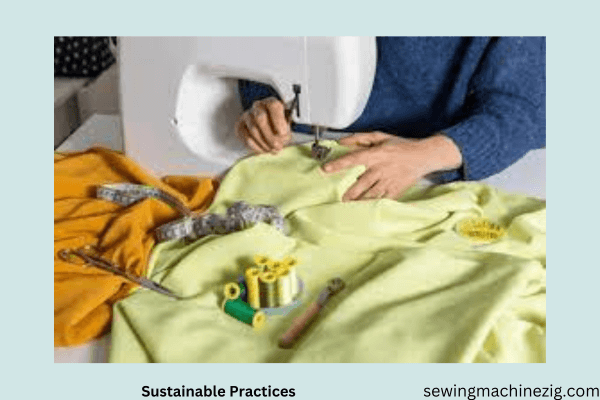
By learning basic sewing, you can actively participate in sustainable fashion practices. You can repair, upcycle, and repurpose old garments or fabrics, extending their lifespan and reducing waste. This contributes to a more environmentally friendly approach to fashion and that’s why you should know why is it important to learn basic sewing.
5. Problem-Solving Skills:
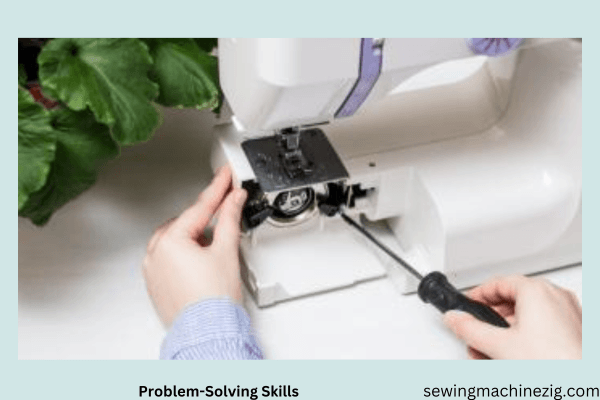
Sewing involves problem-solving and critical thinking. It challenges you to find solutions for fitting issues, pattern adjustments, and fabric choices. These skills can be applied to various areas of life, fostering a resourceful and adaptable mindset.
6. Career And Entrepreneurial Opportunities:

Basic sewing skills can open doors to various career paths and entrepreneurial ventures. You can pursue a career in fashion design, costume making, alterations, or even start your own sewing business. Having sewing knowledge can be a valuable asset in these fields.
7. Connection To Tradition And Heritage:
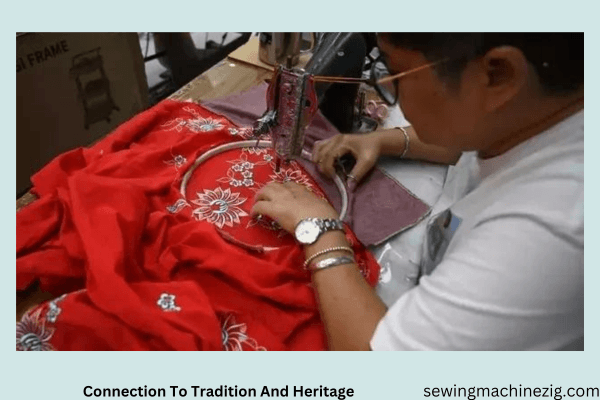
Learning basic sewing connects you to a long-standing tradition and heritage of craftsmanship. It allows you to appreciate the skills and techniques passed down through generations and preserve these valuable traditions for future generations.
8. Practical And Creative Problem-Solving:
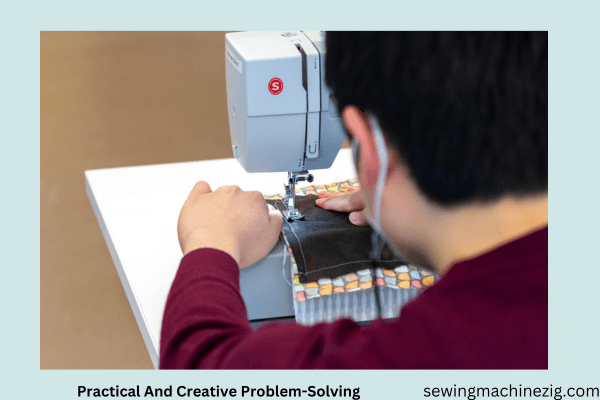
Sewing involves a combination of practicality and creativity. It requires you to analyze and solve problems related to garment construction, fitting, and design. These problem-solving skills can be applied to various other areas of life, fostering a resourceful and innovative mindset.
9. Handmade Gifts And Personalization:
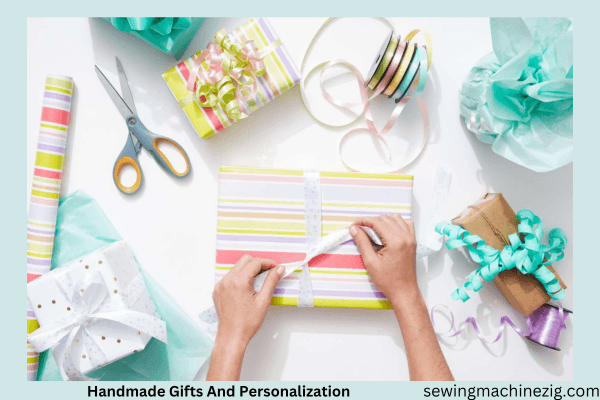
Knowing how to sew enables you to create unique and heartfelt gifts for friends and family. You can craft personalized items, such as handmade quilts, clothing, or accessories, which hold sentimental value and show your thoughtfulness.
10. Empowerment And Confidence:
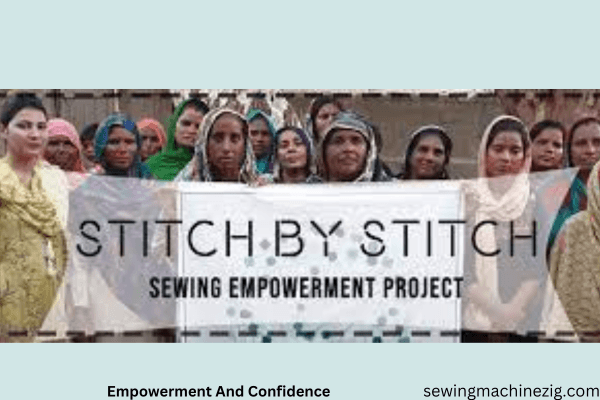
Learning basic sewing skills empowers you to take control of your clothing and style choices. You gain the confidence to make your own garments alter existing ones, and express your personal fashion sense. This empowerment extends beyond fashion and can positively impact other areas of your life.
Overall, learning basic sewing skills equips you with practical, creative, and sustainable abilities. It provides a sense of accomplishment, and self-sufficiency, and opens up a world of possibilities for self-expression, career opportunities, and personal growth. Hope you learn now why is it important to learn basic sewing, let’s explore more.
35 Reasons Why You Should Learn How To Sew
Learning how to sew and why is it important to learn basic sewing is a valuable skill that opens up a world of creativity, self-sufficiency, and personal expression. Whether you’re a complete beginner or already have some sewing knowledge, there are numerous reasons why you should consider diving into this craft.
From cost-saving and customization to sustainability and fashion independence, sewing offers a range of benefits that go beyond simply creating garments.
With sewing skills, you can repair and alter clothing, unleash your creativity through unique designs, reduce waste, and even embark on entrepreneurial opportunities.
In this article, we will explore 35 compelling reasons why is it important to learn basic sewing is worth your time and effort.
1. Self-Sufficiency:
Learning to sew allows you to handle basic repairs and alterations on your own, reducing dependence on others and saving money on professional services.
2. Cost-Saving:
By repairing and altering clothing yourself, you can save money on tailoring expenses and extend the lifespan of your wardrobe, minimizing the need for frequent replacements.
3. Customization:
Sewing gives you the freedom to personalize and customize your garments, ensuring a perfect fit and adding unique details that reflect your style and personality.
4. Sustainable Fashion:
By embracing sewing, you can actively contribute to sustainable fashion practices. You can repurpose old garments, upcycle fabrics, and reduce textile waste, making a positive impact on the environment.
5. Creative Expression:
Sewing provides an outlet for creativity, allowing you to transform fabric into unique and artistic creations. You can experiment with colors, textures, and patterns to design garments that reflect your individual style.
6. Unique Garments:
With sewing skills, it’s good to know why is it important to learn basic sewing, so that you can create one-of-a-kind garments that stand out from mass-produced fashion. You have the opportunity to design and sew pieces that truly express your personal style and preferences.
7. Perfect Fit:
Sewing enables you to tailor clothing to your body measurements, ensuring a flattering and comfortable fit. You have control over the shape, length, and proportions of your garments, enhancing your confidence and comfort.
8. Wardrobe Versatility:
Learning to sew expands your wardrobe possibilities. You can create versatile pieces that can be mixed and matched, allowing for a wider range of outfit options without needing to buy new clothes.
9. Handmade Gifts:
Sewing skills give you the ability to create heartfelt and personalized gifts for your loved ones. Handmade items carry a unique sentiment and show the recipient that you put thought and effort into their gift.
10. Fashion On A Budget:
Sewing allows you to recreate fashionable looks at a fraction of the cost. You can sew your own trendy pieces, replicating high-end designs and staying fashionable within your budget.
11. Repairing Household Items:
Sewing skills extend beyond clothing and can be applied to repairing various household items. You will be happier to learn why is it important to learn basic sewing because you can mend curtains, cushions, bedding, and other textiles, prolonging their lifespan and saving money on replacements.
12. Stress Relief:
Sewing provides a therapeutic and relaxing activity. Focusing on the rhythmic motion of stitching can help calm the mind, reduce stress, and promote mindfulness, it’s also one of the main reasons you should know why is it important to learn basic sewing.
13. Patience Building:
Sewing requires patience and attention to detail. As you work on intricate projects, you develop patience, precision, and the ability to persevere through challenging tasks.
14. Learning A Traditional Craft:
Sewing connects you to a rich tradition of craftsmanship that has been passed down through generations. By learning this traditional craft, you contribute to preserving cultural heritage and appreciating the artistry of sewing.
15. Entrepreneurial Opportunities:
Sewing skills can be turned into a business or side hustle. You can sell your handmade creations, offer sewing services, or even start your own fashion brand, turning your passion for sewing into a source of income.
16. Independence In Fashion Choices:
Sewing empowers you to be the designer of your own wardrobe. You are not limited to mass-produced trends but have the freedom to create garments that align with your unique style and preferences.
17. Repairing And Repurposing Old Clothing:
Instead of discarding worn-out garments, sewing skills allow you to repair, revamp, or repurpose them into new and fashionable pieces. This promotes sustainability by reducing waste and promoting a more conscious approach to fashion.
18. Historical Costume Reproduction:
Sewing skills enable you to recreate historical costumes, participate in historical events, reenactments, or simply express your fascination with different eras. It allows you to delve into history and engage with the past through fashion.
19. Confidence Booster:
Successfully completing sewing projects boosts self-confidence and self-esteem that’s why it’s good to know why is it important to learn basic sewing. The satisfaction of creating something with your own hands and the compliments you receive on your craftsmanship contribute to a sense of achievement and pride.
20. Teaching Future Generations:
By learning to sew, you can pass on this valuable skill to others, such as your children or younger family members. Teaching sewing not only preserves tradition but also fosters creativity and practical skills in the next generation.
21. Creating Unique Home Decor:
Sewing skills extend beyond clothing. You can create custom home decor items, such as curtains, pillow covers, table runners, and quilts. These handmade pieces add a personal touch to your living space, reflecting your style and creativity.
22. Bonding Through Sewing Circles:
Engaging in sewing activities can bring people together and foster connections. Joining sewing groups, attending workshops, or participating in sewing circles allows you to share your passion with like-minded individuals, exchange ideas, and build friendships.
23. Understanding Garment Construction:
Learning to sew gives you a deeper understanding of how garments are constructed. You gain insight into patternmaking, fabric choices, and construction techniques, enhancing your appreciation for the artistry and craftsmanship behind clothing.
24. Upcycling Fashion:
With sewing skills, you can transform old or thrifted garments into trendy and fashionable pieces. Upcycling allows you to give new life to pre-loved items, reducing waste and promoting a more sustainable and eco-friendly approach to fashion.
25. Fostering Problem-Solving Skills:
Sewing involves troubleshooting and finding solutions to various challenges, such as fitting issues, pattern adjustments, and fabric choices. These problem-solving skills honed through sewing can be applied to other areas of life, fostering a resourceful and innovative mindset.
26. Learning Patience And Perseverance:
Sewing projects often require time and dedication. The process of cutting, pinning, and stitching can be intricate and time-consuming. By embracing sewing, you learn the value of patience and develop perseverance as you work towards completing a project.
27. Enhancing Attention To Detail:
Sewing demands attention to detail, from precise measurements to accurate stitching. This skill translates into other aspects of life, such as improving focus and attention in tasks that require meticulousness.
28. Developing Fine Motor Skills:
Sewing involves delicate hand movements and coordination between fingers, needles, and thread. Regular sewing practice can improve fine motor skills and dexterity, benefiting you in various other activities.
29. Preservation Of Family Heirlooms:
Sewing skills enable you to restore and preserve family heirlooms, such as vintage garments or linens. By repairing and maintaining these treasured items, you keep the family history alive and ensure their longevity.
30. Stress-Free Wardrobe Emergencies:
When faced with a wardrobe malfunction or last-minute outfit dilemma, having sewing skills gives you the ability to quickly fix the issue and avoid wardrobe-related stress and panic.
31. Mindful Consumption:
Learning to sew encourages a shift towards mindful consumption. You become more aware of the time, effort, and resources invested in creating clothing, prompting you to make more conscious choices when purchasing new items.
32. Understanding Fabric Properties:
Through sewing, you develop knowledge of different fabric types, their properties, and how they behave. This understanding helps you make informed decisions when choosing fabrics for projects or when shopping for clothes.
33. Nurturing A Lifelong Hobby:
Sewing is a hobby that can bring joy and fulfillment throughout your life. It provides an outlet for creativity, a means of self-expression, and a way to continually challenge and develop your skills.
34. Cultural Exploration:
Sewing can be a gateway to exploring different cultures through their traditional textiles, embroidery techniques, and garment styles. It allows you to appreciate the diversity and richness of global craftsmanship.
35. Personal Satisfaction And Pride:
Above all, knowing why is it important to learn basic sewing helps you to sew and brings a sense of personal satisfaction and pride. The ability to create something beautiful and functional with your own hands is a rewarding experience that boosts self-esteem and fuels a sense of accomplishment.
What Is The Basic Concept Of Dressmaking And Tailoring
The basic concepts of dressmaking and tailoring revolve around creating well-fitting and stylish garments. Both disciplines involve the construction, alteration, and customization of clothing, but they differ in their approach and level of intricacy.
Dressmaking is the art of creating garments from scratch. It involves taking measurements, selecting patterns, cutting fabric, and sewing pieces together to create a finished garment.
Dressmakers work with a variety of fabrics, design elements, and sewing techniques to bring their creative vision to life. They focus on precision and attention to detail to ensure a perfect fit and a high-quality finished product.
Tailoring, on the other hand, primarily focuses on altering existing garments to achieve a better fit or desired style. That’s why is it important to learn basic sewing because tailors possess expertise in garment construction and can modify garments to suit individual body shapes and preferences.
They take measurements, adjust seams, reshape silhouettes, and make necessary changes to ensure a customized fit. Tailoring often involves more complex alterations, such as adjusting sleeves, tapering trousers, or resizing jackets.
In both dressmaking and tailoring, understanding body proportions, fabric characteristics, sewing techniques, and garment construction principles are essential.
The goal is to create garments that flatter the wearer, showcase their personal style, and provide comfort and confidence.
Whether you’re a dressmaker crafting garments from scratch or a tailor you know very well why is it important to learn basic sewing, besides perfecting the fit of existing clothing, the concepts of precision, craftsmanship, and attention to detail are central to both practices.
In What Ways Can We Benefit From Dressmaking
Dressmaking offers a range of benefits that can enrich your life in various ways. Here are some of the ways and why is it important to learn basic sewing so that in which you can benefit from dressmaking:
1. Customized Fit:
One of the significant advantages of dressmaking is the ability to create garments that fit you perfectly. By taking precise measurements and tailoring the garment to your body, you can achieve a fit that flatters your shape and enhances your comfort.
2. Personal Expression:
Dressmaking allows you to express your unique style and creativity. You have the freedom to choose fabrics, patterns, and design elements that resonate with your taste and personality. This enables you to create one-of-a-kind garments that reflect your individuality.
3. Wardrobe Versatility:
With dressmaking skills, you can expand your wardrobe options. You can create garments that are versatile and can be mixed and matched in different ways, providing you with a wider range of outfit choices.
4. Quality And Durability:
When you make your own clothes, you have control over the quality of materials and construction. By selecting high-quality fabrics and paying attention to detail during the sewing process, you can create garments that are built to last.
5. Cost Savings:
While there may be an initial investment in sewing equipment and materials, dressmaking can save you money in the long run. By making your own clothes, you can avoid the high costs of designer brands and tailor-made garments.
6. Sustainable Fashion:
Dressmaking promotes sustainable fashion practices. By creating garments yourself, you can reduce reliance on fast fashion, which often contributes to environmental and social issues. You can make conscious choices in fabric sourcing, repurpose old garments, and reduce textile waste.
7. Learning And Skill Development:
Dressmaking is a continuous learning process that allows you to develop valuable skills. As you progress, you’ll acquire knowledge of fabric types, sewing techniques, patternmaking, and garment construction. These skills can be applied to various other sewing projects and foster personal growth.
8. Repair And Alteration:
Dressmaking skills enable you to repair and alter clothing. Instead of discarding damaged garments or items that no longer fit, you can extend their lifespan by making necessary repairs or modifications.
9. Handmade Gifts:
Dressmaking provides an opportunity to create thoughtful and personalized gifts for friends and family. Handmade garments or accessories carry a special sentiment and show your care and effort in crafting something unique.
10. Entrepreneurial Opportunities:
If you have a passion for dressmaking, it can be turned into a business or side hustle. You can sell your handmade creations, offer custom sewing services, or even start your own fashion brand.
11. Stress Relief And Mindfulness:
Engaging in dressmaking can be a calming and therapeutic activity. Focusing on the rhythmic motion of sewing can help reduce stress, promote mindfulness, and provide a sense of accomplishment.
12. Connection And Community:
Dressmaking can connect you with like-minded individuals who share your passion for sewing. Joining sewing groups, attending workshops, or participating in online communities allows you to share knowledge, exchange ideas, and build meaningful connections.
Overall, dressmaking empowers you to take control of your wardrobe, express your creativity, and contribute to a more sustainable and conscious approach to fashion.
It offers a range of benefits that go beyond the practicality of creating clothes, enriching your life through self-expression, skill development, and personal fulfillment.
Sewing Tips For Beginners To Remember In Sewing A Dress
When you’re a beginner in sewing and attempting to sew a dress, it’s helpful to keep certain tips in mind to ensure a successful and enjoyable sewing experience. Here are some sewing tips for why is it important to learn basic sewing, so that beginners can remember when sewing a dress:
1. Start With A Simple Pattern:
Choose a dress pattern that is labeled as beginner-friendly and has clear instructions. Simple patterns with fewer pattern pieces and minimal design details will be easier to handle as you build your sewing skills.
2. Select Appropriate Fabric:
Opt for fabrics that are beginner-friendly, such as cotton or cotton blends, as they are easier to work with. Avoid slippery or stretchy fabrics that can be more challenging to handle for beginners.
3. Take Accurate Measurements:
Accurate measurements are crucial for achieving a well-fitting dress. Use a measuring tape and follow the pattern instructions to take precise measurements of your bust, waist, hips, and other relevant areas. Refer to the pattern’s size chart to determine the correct pattern size to use.
4. Practice On Scrap Fabric:
Before working on your actual dress fabric, practice sewing techniques on scrap fabric. This will help you get comfortable with the machine, test stitching tension, and practice sewing straight lines and curves.
5. Use Sharp Fabric Scissors:
Invest in a pair of sharp fabric scissors specifically designated for cutting fabric. Dull scissors can result in jagged or uneven edges, making it challenging to sew accurately.
6. Pin And Tack Fabric:
Pin your pattern pieces to the fabric before cutting to ensure accurate cutting and prevent shifting. Additionally, use basting stitches or hand tacking to temporarily hold fabric pieces together during construction, making it easier to sew accurate seams.
7. Press As You Go:
Pressing your seams and fabric at each stage of construction is essential for achieving professional-looking results. Use an iron to press seams open or to the side, as instructed by the pattern.
8. Take Your Time With Seam Sewing:
Sewing accurate and straight seams is crucial for a well-constructed dress. Take your time, sew slowly, and practice sewing in a straight line. Use the markings on your sewing machine as a guide, or consider using a seam guide attachment.
9. Finish Raw Edges:
To prevent fraying, finish the raw edges of your fabric. Options include using a serger machine, a zigzag stitch on your sewing machine, or binding the edges with bias tape.
10. Try On And Make Adjustments:
As you sew, periodically try on the dress to check the fit and make any necessary adjustments. This allows you to catch fit issues early on and make alterations before completing the dress.
11. Seek Help And Resources:
Don’t hesitate to seek guidance from sewing books, online tutorials, or sewing communities if you encounter difficulties or have questions. The sewing community is generally supportive and willing to offer advice and assistance.
12. Enjoy The Process:
Remember that sewing is a skill that improves with practice. Embrace the learning journey, celebrate your progress, and enjoy the process of creating your own dress.
By keeping these sewing tips in mind, you’ll be well on your way to successfully sewing a dress and gaining confidence in your sewing skills. Happy sewing!
Conclusion:
Why is it important to learn basic sewing, well learning basic sewing is an important skill that can bring numerous benefits to your life. Whether you’re interested in fashion, or crafts, or simply want to become more self-sufficient, basic sewing knowledge empowers you to create, repair, and customize garments and other fabric items.
It offers the opportunity for self-expression, creativity, and the ability to bring your unique ideas to life. Moreover, sewing promotes sustainability by reducing waste and encouraging a mindful approach to fashion.
It also provides a sense of accomplishment, personal fulfillment, and the ability to connect with a community of fellow sewing enthusiasts. By investing time in learning basic sewing skills, you unlock a world of creativity, practicality, and endless possibilities. Hope you learn and understand very well why is it important to learn basic sewing. Happy Sewing!
FAQs:
Q 1: Why Is It Important To Learn Basic Sewing When Ready-Made Clothing Is Easily Accessible?
A: Learning basic sewing allows you to customize and alter ready-made clothing to achieve a better fit and personal style. It also opens up possibilities for creating unique and one-of-a-kind garments that reflect your individuality.
Q 2: Can Learning Basic Sewing Help Save Money?
A: Absolutely! Basic sewing skills enable you to repair damaged garments, extend their lifespan, and avoid costly replacements. Additionally, you can create your own clothing and home decor items, reducing reliance on expensive store-bought alternatives.
Q 3: How Does Learning Basic Sewing Contribute To Sustainability?
A: By learning to mend, alter, and repurpose clothing, you can reduce textile waste and minimize your carbon footprint. Basic sewing empowers you to embrace a more sustainable and mindful approach to fashion, promoting reusability and reducing the environmental impact of fast fashion.
Q 4: Does Learning Basic Sewing Promote Creativity?
A: Yes, learning to sew provides a creative outlet where you can experiment with different fabrics, patterns, and designs. It allows you to express your unique style and unleash your creativity by bringing your ideas to life through handmade creations.
Q 5: Are There Practical Benefits To Learning Basic Sewing?
A: Absolutely! Basic sewing skills come in handy for everyday tasks like replacing buttons, hemming pants, or repairing torn seams. Being self-sufficient in these small repairs can save time and money while ensuring that your clothes always look their best.
Q 6: Can Learning Basic Sewing Be A Form Of Relaxation And Stress Relief?
A: Sewing can indeed be a therapeutic and calming activity. The focused and repetitive nature of stitching can help you relax, reduce stress, and promote mindfulness. It provides a sense of accomplishment and can be a welcome break from our busy lives.
Q 7: Is It Possible To Turn Basic Sewing Skills Into A Creative Business?
A: Absolutely! Basic sewing skills can lay the foundation for a creative business venture. You can offer alteration and tailoring services, create custom-made clothing, or even start your own online shop selling handmade items. It offers a platform for entrepreneurial opportunities and pursuing a passion for sewing.

